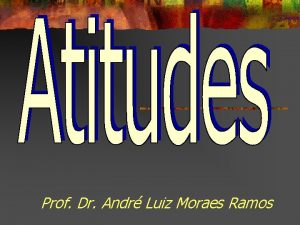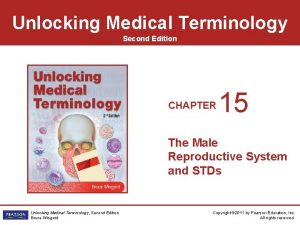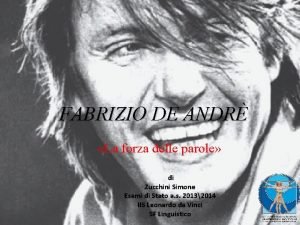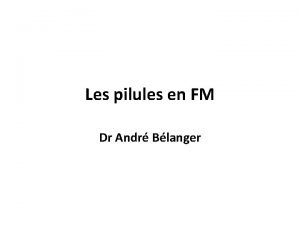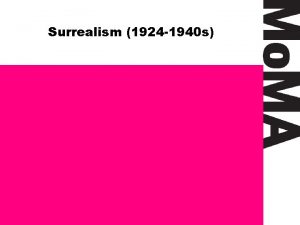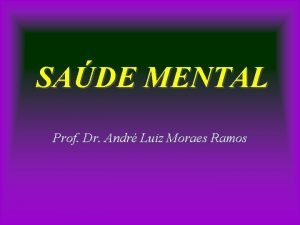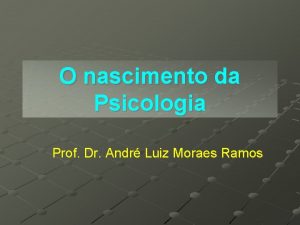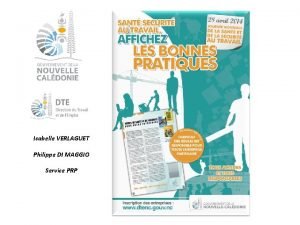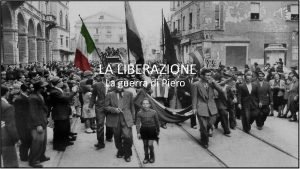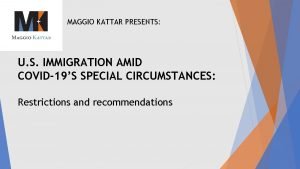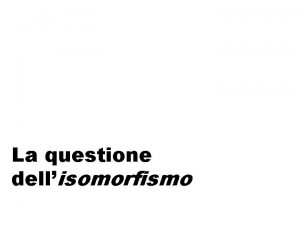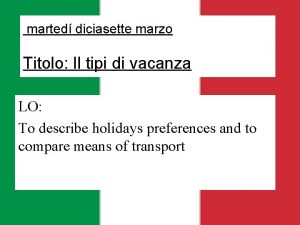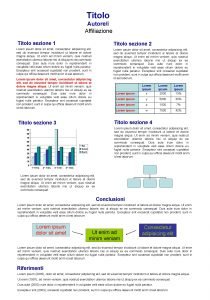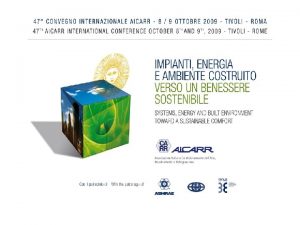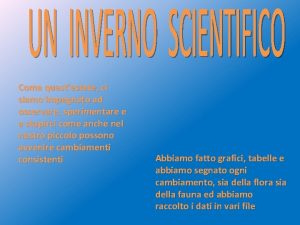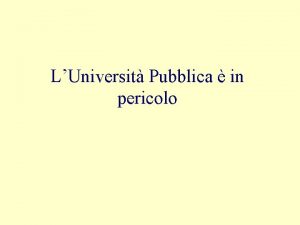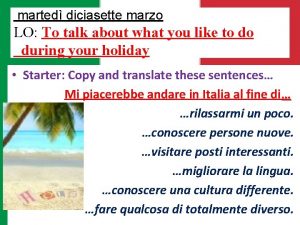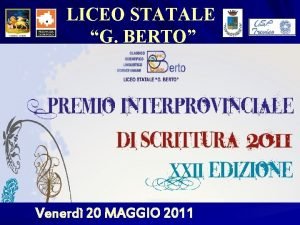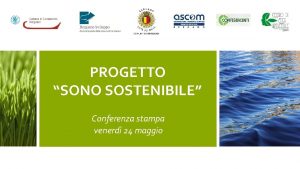venerd diciasette maggio Titolo Questestate andr LO To













- Slides: 13

venerdí diciasette maggio Titolo: Quest’estate andró… LO: To use the future tense in Italian when talking about holidays

Per iniziare: a) b) c) d) e) f) g) h) i) j) 1) The day before yesterday L’altro ieri 1) In the future 2) Today oggi 2) Last month 3) Yesterday Ieri 3) The day after tomorrow 4) the future Nel futuro 4) In Yesterday Last week La settimana scorsa 5) 5) Today Next year L’anno prossimo 6) 6) Next year 7) Tomorrow domani 7) Tomorrow Next summer L’estate prossima 8) 8) Last year 9) yearbefore yesterday L’anno scorso 9) Last The day 10) The day after tomorrow Dopodomani 10)Last week

Leggi il testo e complete le frasi in inglese. É il mio secondo giorno qui a Firenze e mi diverto un sacco! Sono nella terrazza di un bar. Ieri sono arrivata all’hotel alle dieci e poi sono andata ad esplorare la cittá. Ho visto la basilica di Santa Maria Novella e ho visitato il Museo degli Uffizi. Questa mattina, sono andata in un piccolo mercato dove ho comprato un regalino per mia mamma. Oggi pomeriggio andró a fare una gita in barca sul fiume Arno e poi domani prenderó il treno per tornare a casa. Adoro Firenze!. É la mia cittá preferita in Italia! A presto, Ludovica 1. Yesterday, Ludovica… and then… 2. This morning, she… 3. This afternoon, she… 4. Tomorrow, Ludovica… 5. Firenze is… present perfect future Visito Ho visitato visiteró Faccio * Vado Prendo Ho preso * vedo Ho visto * vedró

comprare Compreró io parlare Parleró studiare studieró imparare impareró viaggiare A R E viaggeró

scrivere scriveró io vendere prendere leggere E R E venderó prenderó leggeró

finire finiró io partire dormire capire partiró dormiró I R E capiró

The future of regular verbs is formed by dropping the final -e of the infinitive and adding the following endings. For -are verbs, the a is changed to an e. SUBJECT INFINITIVE ENDING io viaggiare -ó tu visitare -ai lui/lei soggiornare -á noi mangiare -emo voi scrivere -ete loro dormire -anno They will write loro scriveranno ioio viaggeró I will we willtravel eat mangeró

Many verbs use irregular stems in the future tense, but they still use the regular endings from above. andare fare stare dovere volere vedere avere essere venire -and -far -star -dovr -vorr -vedr -avr -sar -verr

Completa le frasi con il verbo al futuro 1. Ada ______ un regalo da Pia. (ricevere) 2. Noi non ______ troppo alla festa. (mangiare) 3. Io ______ questa porta. (aprire) 4. Domani Tina ______ fino a tardi. (dormire) 5. Noi ________ in piscina. (nuotare) 6. Loro ________ in francese. (parlare) 7. Elsa ______ italiano. (parlare) 8. Io ________ a tennis. (giocare) 9. I ragazzi ________ la finestra. (chiudere) 10. Gli studenti ________ un gelato. (prendere)

Ascolta: parlano al presente, passato o futuro? 1 PR 2 F 3 F 4 PA 5 F 6 PR

Copia e complete coniugando i verbi al tempo giusto Normalmente, 1 Ma l’anno scorso, io L, anno prossimo, io (trascorrere) le vacanze 4 (andare) in 7(andare) in al mare con la mia montagna dove 5 campeggio. 8 famiglia. Io 2 (andare) (fare) un corso di sci (partire) con I miei in spiaggia e 3 (nuotare) e 6 (provare) lo in mare. amici. 9 (fare) tutti I snowboard. Era figo! tipi di sport estremi con il parapendio. Change into third person singular Translate: L’anno scorso sono andato a Roma ed era fantastico, inatti volevo andarci da tanto tempo.

Com’é stato il tempo durante le tua vacanze? What was the weather like during your holiday? Presente • Fa bel (brutto) tempo • Fa caldo • Fa freddo • C’é vento • C’é tempesta • É nuvoloso • Piove • Nevica Passato • Faceva bel (brutto) tempo • Faceva caldo • Faceva freddo • C’era vento • C’era una tempesta • Era nuvoloso • Ha piovuto • Ha nevicato • The weather was nice (bad) • It was hot • It was cold • It was windy • It was stormy • It was cloudy • It rained • It snowed

1. Cosa ti piace fare normalmente durante le vacanze? What do you normally like to do on holiday? 2. Preferisci andare in vacanza con la tua famiglia o con gli amici? Perché? Do you prefer to go on holiday with your family or friends? Why? 3. Come passerai le vacanze estive quest’anno? How are you going to spend the summer holidays this year? Future 4. Dove sei andato in vacanza l’anno scorso e con chi? Where did you go on holiday last year and who with? 5. Dove hai alloggiato e com’era? Where did you stay and what was it like? 6. Che cos’hai fatto e com’era il tempo? What did you do and what was the weather like? 7. Qual’é stato l’aspetto migliore della tua vacanza? What has been the best part of your holiday? 8. Sei giá stato/a in vacanza in Italia? Have you already been on holidays in Italy? 9. Perché secondo te le vacanze sono importanti? 10. Dove andavi in vacanza quando eri bambino/a?
